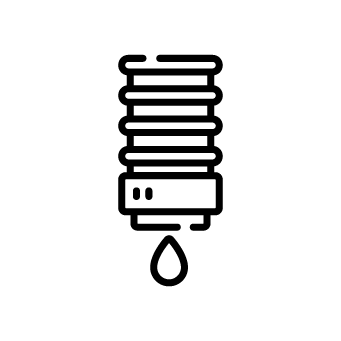Heating System
Heating System

Your Vehicle's Heating System
Your vehicle’s heating system is very important, especially when living in North Dakota with its cold winters. The heating system in your car is connected to the engine cooling system which uses heat from the engine, and it then is used to warm up your vehicle. It also helps control the temperature of the engine so it does not overheat. Heating systems are useful because they reduce the risk of any damage happening during cold starts and idling during the winter.
Your engine needs to be warmed up before driving because the oil isn’t able to circulate fast enough to the correct speed when it’s cold. This can result in damaging your engine and heating system. A vehicle's engine typically takes about twenty minutes to fully warm up.
Signs That Your Heating System Isn't Working Properly
- Low or no airflow
- Inconsistent temperature
- Musty smell
- Steam coming from the engine compartment
- Foggy windshield
- Engine coolant loss
- Cold cabin with a hot engine
If any of these signs appear, it is imperative that you get your vehicle checked out before any of these issues get worse.
Heater Components

Radiator
Monitors the vehicle's temperate to prevent the vehicle from overheating

Radiator/Heater Hoses
Transfers coolant from the engine to the heating core

Blower Fan
Helps circulate air from inside the vehicle to the evaporator and heater core

Heater Core/Control Valve
Assists in maintaining proper passenger area temperature

Thermostat
Responsible for the regulation of the flow of coolant
Common Causes for Your Heater to Not Work

Faulty Thermostat
The most common cause is a faulty thermostat. The thermostat can get stuck open or closed, resulting in the inability to control the flow of coolant to the heater core. This can also affect the engine cooling system. If the thermostat isn’t able to signal to the vehicle that it has warmed up, you may have a broken thermostat.

Low Antifreeze/Coolant
Coolant is used to cool down your car during hot summers and warm up your vehicle during cold winters. If antifreeze levels drop, the hot fluid won't be able to make it to the heater core resulting in the cabin of your vehicle not producing heat. Two different reasons this can occur are if the engine is overworking itself or if it wasn't properly filled.

Damaged/Defective Heater Fan
The heater fan that blows into the vehicle may be damaged even though the antifreeze/coolant is getting access into the heater core. This will result in poor airflow and decreased efficiency in your vehicle’s defroster.

Clogged Heater Core
A clogged heater core can occur from loose dirt and debris that enter the coolant system. This can happen from the radiator rusting from within or if debris enters through the radiator and gets stuck in the heater core.

Leaky Radiator
If your radiator is leaking, the heating core isn’t receiving the coolant it needs to run, which can damage your engine. A leaky radiator may cause the engine to overheat. If the temperature warning light projects itself, it’s likely there is a leak.

Damaged HVAC Controls
This is when your buttons, touch screen, or controls aren’t properly connecting to the heating system. This can lead to a malfunction that could prevent your heater from working.

Faulty Wiring or Blown Fuses
Similar to the HVAC controls, your vehicle's wiring could be short, causing the heat to not come out of the vents. A blown fuse is considered to be a minor electrical problem.
When It's Time to Get Your Heater Checked Out
If your vehicle's heating system starts to obtain a musty smell, there is little to no airflow in the vents, or your windshield starts to fog up, then it's time to get your vehicle checked out. Our certified technicians would be more than happy to inspect your vehicle and diagnose and fix the problem. We want our guests to stay happy and warm in their vehicles throughout the cold winter months.
Schedule Service Today





